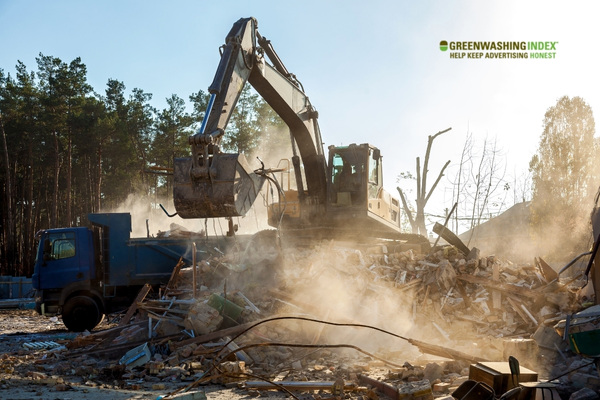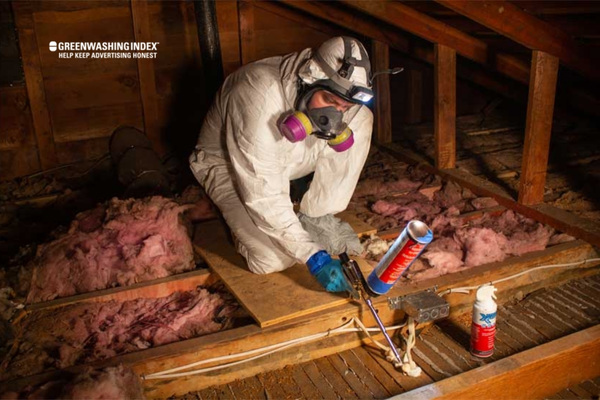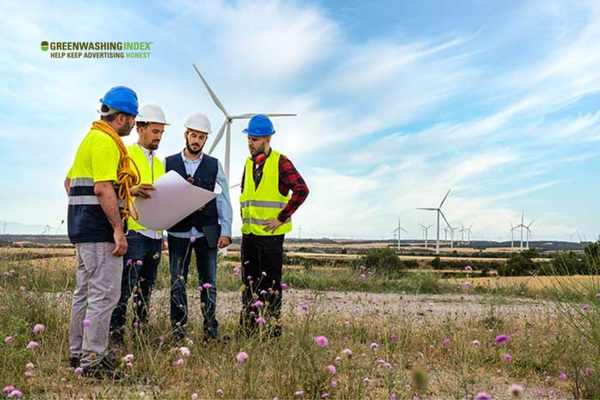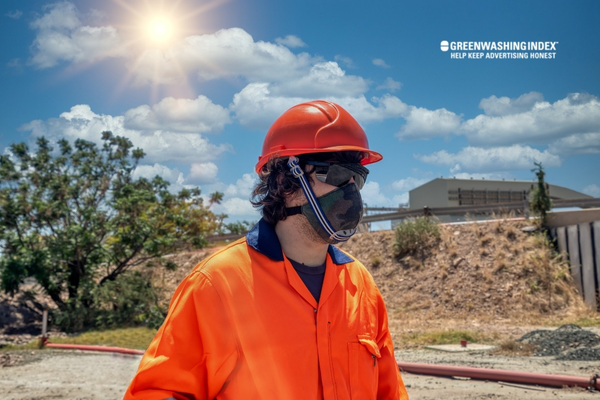

In a world increasingly defined by the impacts of climate change, the emergence of climate change jobs represents a vital opportunity for individuals to contribute meaningfully to environmental sustainability. These roles span diverse fields, from renewable energy installation to urban conservation, each playing a crucial part in combating ecological challenges.
Waking up each day knowing your work directly supports the planet’s health—this is not just a dream but a growing reality for many. As the demand for eco-conscious careers rises, so does the chance to make a lasting difference.
When I think about climate change jobs, I’m talking about work that helps our planet. These jobs are not just one kind. There are many different types that cover a wide range of fields. Each job plays its own important part in fixing climate problems.
Identifying your role in climate change jobs is crucial for those looking to make a meaningful impact on the environment. As climate change continues to pose significant threats to ecosystems and human livelihoods, various career paths have emerged that focus on mitigating its effects.
These roles not only contribute to scientific understanding and policy development but also promote sustainable practices across different sectors. Below are some key job opportunities in the field of climate change, along with their responsibilities and average salaries.
Climate Change Analyst / Climatologist
Environmental Engineer
Sustainability Consultant / Environmental Manager
Disaster Relief Coordinator / Emergency Relief Coordinator
Financial Analyst
Environmental Scientist
Ecologist
Environmental Emergency Planner
These roles highlight the diverse opportunities available for individuals passionate about addressing climate change through various disciplines.
The skills needed for climate change jobs is crucial in addressing one of the most pressing challenges of our time. As the impacts of climate change become increasingly evident, a diverse range of professionals is required to tackle its multifaceted issues.
Careers in this field span various sectors, including research, policy development, environmental management, and community engagement. The following outlines key skills that are essential for success in climate change-related roles:
Essential Skills for Climate Change Jobs
These competencies are vital for professionals aiming to contribute meaningfully to climate action efforts across various sectors.
When we talk about jobs that help our planet, we mean roles that do something about all this bad weather change – you know, when it gets too hot, too cold, or storms hit hard. There are some really good jobs out there. They don’t just pay the bills but also make sure our kids and their kids have a good place to live. Let’s look at a few of these earth-saving gigs.
Urban farming, also known as urban agriculture, has gained significant attention as cities strive to enhance food security and sustainability. This practice involves cultivating plants and raising animals within urban environments, transforming unused spaces into productive gardens and farms. Urban farming not only provides fresh produce to local communities but also contributes to environmental sustainability, social cohesion, and economic development.

As cities become more densely populated, urban farming offers innovative solutions to food production challenges while promoting healthier lifestyles.
An urban grower is typically a micro-scale vendor who cultivates and sells their own produce within urban settings. This can include backyard gardens, rooftop farms, or community plots. Urban growers play a crucial role in local food systems by providing fresh fruits, vegetables, and sometimes small livestock to their communities.
Types of Urban Farming Urban farming encompasses various practices, including:
Benefits of Urban Growing Urban growing offers numerous advantages:
Challenges Faced by Urban Growers Despite its benefits, urban farming faces challenges such as:
Urban growers are vital contributors to sustainable city living. By transforming urban spaces into productive agricultural areas, they enhance community resilience and promote healthier lifestyles.
The role of a Public Green Space Maintenance Professional is essential in ensuring that urban parks and green areas remain functional, safe, and aesthetically pleasing for community use. These professionals are responsible for a variety of maintenance tasks that contribute to the health of the environment and the well-being of residents.
Their work involves not only routine upkeep but also strategic planning to enhance the ecological and social value of public spaces.
General Maintenance Tasks
Monitoring and Planning
Public green space maintenance professionals play a crucial role in enhancing community well-being by:
These professionals are vital in fostering vibrant urban environments that support both ecological health and community engagement.
Administrative support workers play a crucial role in ensuring the smooth operation of offices across various industries. They are responsible for a wide range of tasks that facilitate communication, organization, and efficiency within an organization.
The responsibilities of administrative support workers can vary significantly depending on the specific role and the industry in which they operate. Below is a detailed overview of the key aspects of this profession.
Administrative support workers perform various clerical and organizational tasks, including:
Certain administrative roles require specialized knowledge based on the industry:
The U.S. Bureau of Labor Statistics projected an average employment growth of 12% for administrative assistants from 2012 to 2022. As of 2018, the median annual wage for general administrative assistants was approximately $52,840.
Employers seek candidates with a combination of skills and personal traits, including:
Administrative support workers are essential to the functionality of an organization, providing vital assistance that enhances productivity and workflow. Their diverse responsibilities require a blend of technical skills, attention to detail, and interpersonal abilities.
Brownfield restorers, also known as brownfield redevelopment specialists or site managers, play a vital role in environmental remediation and urban redevelopment. They focus on the cleanup and revitalization of contaminated properties, ensuring these sites are safe for future use.

This profession requires a blend of technical knowledge, project management skills, and environmental awareness. Below is a comprehensive overview of the responsibilities, qualifications, and outlook for brownfield restorers.
Brownfield restorers are tasked with several critical duties:
To succeed as a brownfield restorer, individuals typically need:
The demand for brownfield restoration specialists is expected to grow as urban areas seek to redevelop contaminated sites. The U.S. Bureau of Labor Statistics projects a steady increase in job opportunities in this field due to ongoing interest in sustainable development practices. As of 2023, the median annual wage for these professionals was approximately $133,560.
Brownfield restorers often work in diverse environments, including outdoor sites that may be hazardous. They must adhere to strict safety protocols while conducting inspections and managing cleanup operations. Their work contributes significantly to community revitalization and environmental protection efforts.
Brownfield restorers are essential in transforming contaminated properties into safe, usable spaces, thus promoting sustainable development and enhancing community health.
Invasive species controllers, also known as invasive alien species (IAS) enforcement officers, play a critical role in managing and mitigating the impact of non-native species on local ecosystems.
Their work involves a combination of scientific knowledge, legal enforcement, and community engagement to ensure compliance with environmental regulations. Below is an overview of the responsibilities, qualifications, and employment outlook for this profession.
Invasive species controllers are involved in various tasks, including:
To be effective in this role, candidates typically need:
The demand for invasive species controllers is expected to grow as environmental regulations become more stringent and the need for ecosystem protection increases. The salary for this position can vary; however, it was reported at approximately R472,812 per annum in South Africa as of 2024.
Invasive species controllers often work in outdoor settings that may involve hazardous conditions. They are required to adhere to safety protocols while conducting fieldwork and engaging with various stakeholders. Their efforts are vital for preserving biodiversity and protecting native ecosystems from the threats posed by invasive species.
Invasive species controllers are essential for enforcing regulations that protect natural habitats from the adverse effects of non-native species. Their work not only contributes to environmental sustainability but also supports community awareness and compliance with ecological laws.
Imagine you could help keep our planet cool—not by wearing sunglasses (though those are cool too)—but by being really smart about how buildings use energy. That’s where another key player enters: the Energy Auditor.
As an energy auditor spending my days poking around houses or offices inspecting light bulbs, heaters, air conditioners—all sorts of stuff—to find out if they’re gobbling up more power than needed.
What happens next? I sit down with folks to chat about how changing some small things—like swapping old lights for snazzy LED bulbs—can make big changes in cutting down nasty emissions from power plants burning fuel all day long.
It’s downright amazing how tiny tweaks add up to huge savings on bills and give Earth a big hug at the same time!
In these jobs – brownfield restorers working magic on forgotten lands, invasive species controllers safeguarding nature, energy auditors shining a light on saving power – each person has their hand on Earth’s thermostat in some way, helping turn down the heat from climate change apps.
Weatherization experts play a crucial role in enhancing energy efficiency in buildings, particularly in residential settings. Their primary focus is to improve the comfort and energy performance of homes by implementing various weatherization techniques.

This includes air sealing, insulation installation, and conducting energy audits to identify areas where energy is being wasted. As the demand for energy-efficient solutions grows, weatherization experts are increasingly sought after for their skills and knowledge in building science.
Weatherization experts are integral to promoting sustainable practices in the construction industry by improving energy efficiency in homes through their specialized skills and knowledge.
Pedestrian and bike lane construction consultants are essential in planning, designing, and overseeing the development of safe and efficient pathways for non-motorized transportation. Their expertise ensures that pedestrian and bicycle facilities are integrated into urban and rural environments, promoting active transportation while enhancing safety and accessibility.
These consultants work closely with government agencies, urban planners, and construction teams to implement best practices and adhere to regulations, ultimately contributing to healthier communities and reduced traffic congestion.
Pedestrian and bike lane construction consultants play a vital role in creating safer environments for non-motorized users. Their expertise not only enhances mobility but also contributes to sustainable urban development.
Renewable energy installers, particularly those specializing in solar photovoltaic (PV) systems, are crucial in the transition to sustainable energy solutions. These professionals are responsible for the installation, maintenance, and repair of solar panels on residential and commercial properties.
Their work not only helps reduce reliance on fossil fuels but also contributes to energy independence and environmental sustainability. The following outlines the key responsibilities, skills, and qualifications necessary for a renewable energy installer.
Renewable energy installers play a vital role in advancing clean energy initiatives. Their expertise ensures that solar systems are installed safely and efficiently, contributing significantly to the global shift toward renewable energy sources.
Community educators play a vital role in promoting education and training within local communities, particularly in underserved areas. They focus on increasing access to learning opportunities, fostering community engagement, and addressing specific educational needs.

By developing and implementing programs that cater to diverse populations, community educators contribute significantly to lifelong learning and personal development. Their work often involves collaboration with various stakeholders, including local organizations, schools, and government agencies, to create a supportive learning environment.
Community educators are essential in fostering educational growth and empowerment within communities. Their efforts help bridge gaps in access to education, ultimately contributing to improved quality of life and social equity.
Disaster preparedness is a crucial aspect of emergency management aimed at minimizing the impact of disasters through proactive measures. It involves planning, training, and resource allocation to ensure that communities can effectively respond to and recover from various emergencies, whether they are natural or human-made.
A Disaster Preparedness Trainer plays a vital role in this process by educating individuals and organizations about best practices in emergency response. This role encompasses a wide range of responsibilities, including developing training programs, conducting drills, and collaborating with local agencies to enhance community resilience.
Responsibilities:
Disaster Preparedness Trainers are essential in building resilient communities. By equipping individuals with the knowledge and skills to respond effectively during emergencies, they help reduce panic and confusion when disasters occur. Their work not only saves lives but also facilitates quicker recovery by ensuring that communities are well-prepared for potential crises.
Waste removal and recycling professionals play a crucial role in managing waste and promoting sustainability. Their work involves various responsibilities, from overseeing recycling programs to sorting materials for reuse. As environmental concerns grow, the demand for skilled workers in this field has increased significantly.
These professionals contribute to reducing landfill waste, conserving resources, and educating communities on best practices for waste management. Below is a detailed overview of key roles within this vital sector.
A Recycling Specialist is pivotal in developing and managing recycling initiatives. Their responsibilities include:
The role of a Recycling Sorter involves:
A Material Recovery Specialist focuses on:
An Equipment and Truck Operator is responsible for:
A Recycling Officer manages local recycling schemes by:
These roles collectively contribute to effective waste management practices that prioritize sustainability, resource conservation, and public health.
The role of a sustainability consultant has gained significant importance in today’s world, where organizations are increasingly focused on minimizing their environmental impact and promoting sustainable practices.

These professionals provide expert guidance to businesses and governments, helping them develop strategies that balance economic growth with ecological responsibility. As sustainability becomes a priority across various sectors, the demand for skilled consultants is on the rise. Below is a detailed overview of the job responsibilities, qualifications, and career prospects for sustainability consultants.
Sustainability consultants engage with organizations to create and implement policies that promote sustainable practices. Their work encompasses a variety of projects, including:
While there are no formal qualifications required, having a background in relevant fields significantly enhances career prospects. Common educational paths include degrees in:
Experience in consultancy or working with eco-centric organizations is also beneficial. Additionally, pursuing certifications specific to sustainability can improve employability.
The career trajectory for sustainability consultants is promising, with opportunities for advancement as experience is gained. Entry-level positions typically offer salaries ranging from £18,000 to £25,000, while experienced consultants can earn between £25,000 and £60,000 or more depending on their level of expertise and responsibility.
As environmental issues become increasingly complex and regulations tighten, the demand for sustainability consultants is expected to grow, making it a viable career choice for those passionate about making a positive impact on the planet.
The role of a Power Grid Modernization Expert is critical in today’s energy landscape, where the demand for clean and efficient energy solutions is paramount. These professionals are responsible for overseeing the transformation of traditional power grids into smart, resilient, and sustainable systems.
This involves integrating advanced technologies, improving infrastructure, and ensuring that the grid can accommodate renewable energy sources. As utilities face increasing pressures from regulatory bodies and customer expectations, the expertise of these professionals becomes essential for successful grid modernization projects.
The demand for Power Grid Modernization Experts is expected to grow as utilities increasingly prioritize sustainability and resilience in their operations. This role offers opportunities for advancement into senior management positions within energy companies or consulting firms specializing in grid modernization strategies.
Environmental lawyers play a vital role in the protection and advocacy of environmental rights and regulations. They navigate complex legal frameworks to ensure compliance with environmental laws, represent clients in litigation, and work towards sustainable practices across various sectors.
As environmental issues become increasingly pressing, the demand for skilled legal professionals in this field continues to grow. Below is a comprehensive overview of the responsibilities, qualifications, and career prospects for environmental lawyers.
Environmental lawyers engage in a wide range of activities, including:
Environmental law encompasses several specialized areas, including:
To become an environmental lawyer, candidates typically need:
The career prospects for environmental lawyers are promising due to the increasing emphasis on sustainability and regulatory compliance. They can find employment in various sectors:
As awareness of environmental issues grows, so does the need for legal expertise in this field, making it a dynamic career choice for aspiring lawyers.
Environmental engineers play a crucial role in addressing the pressing environmental challenges faced by society today. They apply principles from various scientific disciplines, including engineering, biology, and chemistry, to develop sustainable solutions that mitigate pollution and enhance environmental quality.

As industries increasingly focus on sustainability and compliance with environmental regulations, the demand for skilled environmental engineers continues to rise. Below is a detailed overview of their responsibilities, qualifications, and career prospects.
To become an environmental engineer, candidates typically need:
The career prospects for environmental engineers are promising due to the increasing emphasis on sustainability across various sectors. They can find employment in:
As organizations strive to meet sustainability goals and comply with stricter regulations, the role of environmental engineers will continue to expand, making it a dynamic field with numerous opportunities for growth and advancement.
Environmental scientists play a crucial role in understanding and addressing environmental issues that affect both ecosystems and human health. They utilize a multidisciplinary approach, drawing from fields such as biology, chemistry, geology, and meteorology to conduct research, analyze data, and develop strategies for pollution control and environmental protection.
Their work is essential in informing policies and practices aimed at preserving the environment for future generations. The Environmental Scientist conducts research to identify and eliminate pollutants or hazards affecting the environment.
Conservation scientists play a crucial role in preserving the environment and managing natural resources. Their work involves studying ecosystems, wildlife, and the impact of human activities on the environment.
By developing strategies for sustainability, they help protect biodiversity and ensure that natural resources are used responsibly. Conservation scientists collaborate with various stakeholders, including government agencies, landowners, and community groups, to implement effective conservation practices. Their expertise is essential for addressing environmental challenges and promoting a healthier planet.
Conservation scientists manage, improve, and protect natural resources while ensuring environmental sustainability. They work across various landscapes, including forests, parks, and rangelands, focusing on preserving biodiversity and ecosystem health.
As a conservation scientist, your responsibilities may include:
Conservation scientists typically work for federal, state, or local governments, non-profit organizations, or private landowners. Their work often involves field studies in natural settings as well as office-based data analysis.
A bachelor’s degree in forestry, natural resources, environmental science, or a related field is generally required to become a conservation scientist. Advanced degrees may be beneficial for specialized roles.
The median annual wage for conservation scientists was approximately $68,750 in 2023. Employment in this field is projected to grow by 5% from 2023 to 2033, indicating steady demand for professionals dedicated to environmental protection.
Geoscientists play a crucial role in understanding the Earth’s processes, resources, and hazards. They apply scientific methods to study various aspects of the planet, including its composition, structure, and natural phenomena.

This field not only contributes to resource discovery but also aids in environmental protection and disaster preparedness. The following sections provide a detailed overview of the profession, including educational requirements, job responsibilities, and career outlook.
Education: A bachelor’s degree in geology, geophysics, or a related field is typically required, with many pursuing a master’s degree or Ph.D. for advanced positions.
Median Pay: The median annual salary for geoscientists is approximately $83,680.
Job Growth: The projected job growth rate is about 5% from 2021 to 2031, which is below the national average.
Jobs in 2031: An estimated 26,200 geoscientist positions are expected to be available by 2031.
Geoscientists engage in a variety of tasks that may include:
Successful geoscientists typically possess:
Geoscientists often work in diverse settings, including:
This profession not only contributes to our understanding of Earth but also plays a vital role in addressing environmental challenges and resource management.
Climatologists are scientists who specialize in studying long-term weather patterns and climate trends. Their work is crucial for understanding how climate change affects various aspects of the environment and human life, including agriculture, water resources, and public health.
Unlike meteorologists, who focus on short-term weather forecasts, climatologists analyze data over extended periods to identify trends and make predictions about future climate conditions. This field has become increasingly important as global climate issues gain attention, making the role of climatologists essential in developing effective policies and strategies for sustainability.
Education: A bachelor’s degree in meteorology, environmental science, or a related field is typically required, with many climatologists pursuing advanced degrees for research positions.
Median Pay: The median annual salary for climatologists varies by location but can range from approximately $70,000 to over $86,000 depending on experience and sector.
Job Growth: The job market for climatologists is expected to grow as awareness of climate change increases, with various opportunities in government, academia, and private consulting.
Climatologists engage in a variety of tasks that may include:
Successful climatologists typically possess:
Climatologists can work in various settings, including:
The work of climatologists is vital in addressing the challenges posed by climate change and helping societies adapt to its impacts.
Renewable energy scientists focus on developing and optimizing technologies that harness energy from renewable sources such as solar, wind, and geothermal. Their work is essential in addressing climate change and promoting sustainable energy solutions.
By conducting research, performing site assessments, and analyzing data, these scientists contribute to the design and implementation of effective renewable energy systems. The following sections provide an overview of their roles, responsibilities, and the skills required in this growing field.
Education: A bachelor’s degree in environmental science, engineering, or a related field is typically required, with many positions favoring candidates with advanced degrees.
Median Pay: Salaries for renewable energy scientists can vary widely; entry-level positions may start around $70,000, while experienced professionals can earn upwards of $100,000 annually.
Job Growth: The demand for renewable energy scientists is expected to grow significantly as the world shifts towards sustainable energy practices.
Renewable energy scientists engage in various tasks including:
Successful renewable energy scientists typically possess:
Renewable energy scientists can work in various settings, including:
The role of renewable energy scientists is vital in advancing sustainable practices and combating climate change through innovative technologies.
Climate change is a big deal. It’s changing our world, and not in a good way. But the good news is, there are jobs—climate change jobs—that can help us fight back. These aren’t just any jobs; they’re work that helps to save the planet.
If you worry about the earth and want to do something about it, there’s probably a job out there for you in this field. But how do you choose what’s right? Here are some tips:
1. Think about what you like to do: Do you enjoy being outdoors? Maybe a job working with nature is where you should look. If tinkering with gadgets is your thing, then maybe look into green technology roles.
2. Consider your school subjects: What did you enjoy studying? If science was fun for you, then research roles could be up your alley. If building things was more your speed, then eco-friendly construction might be where to focus.
3. Look at what skills you have: Everyone has something they’re good at. Are you good with people? Environmental education might need someone like you!
4. Reflect on how much school or training you want: Some climate change jobs need lots of schooling, like becoming an environmental scientist or engineer. Others might only need some special training after high school.
5. Think about where you grew up or where you live now: Sometimes, our upbringing gives us unique insights into environmental issues that can guide us toward certain careers.
Don’t just think of these as jobs—they are green jobs, sustainable professions, eco-friendly occupations, and above all else, climate action jobs; these are careers that make a real difference not only to the world but also give meaning and purpose to the person doing them.
Overall, finding the best match for yourself comes down to knowing who we are, what we care about, and how much effort we’re willing to put into it – educationally or skill-wise.
Remembering these things can lead anyone through an array of incredible environmental employment opportunities towards landing one of those top 21 climate change careers that’ll let us all breathe a little easier on this beautiful planet of ours.
No, they’re not the same, but they’re related. Renewable energy jobs focus on clean power sources, while climate change jobs deal with a broader range of tasks to tackle global warming.
Climate change work includes doing research, shaping policies, educating communities, and creating sustainable solutions that help reduce the impact of global warming.
Opportunities lie in diverse fields like environmental science, advocacy, clean energy tech development, urban planning for resilience, and green finance to support eco-friendly projects.
Jobs in climate change represent a pivotal opportunity for individuals seeking to make a meaningful impact. Engaging in careers that help fight climate change not only contributes to environmental preservation but also fosters a sustainable future.
From renewable energy installers to community educators, these roles are essential in addressing the pressing issues of our time. As the demand for jobs that fight climate change continues to grow, pursuing a career in this field can lead to fulfilling work that benefits both the planet and society at large.
